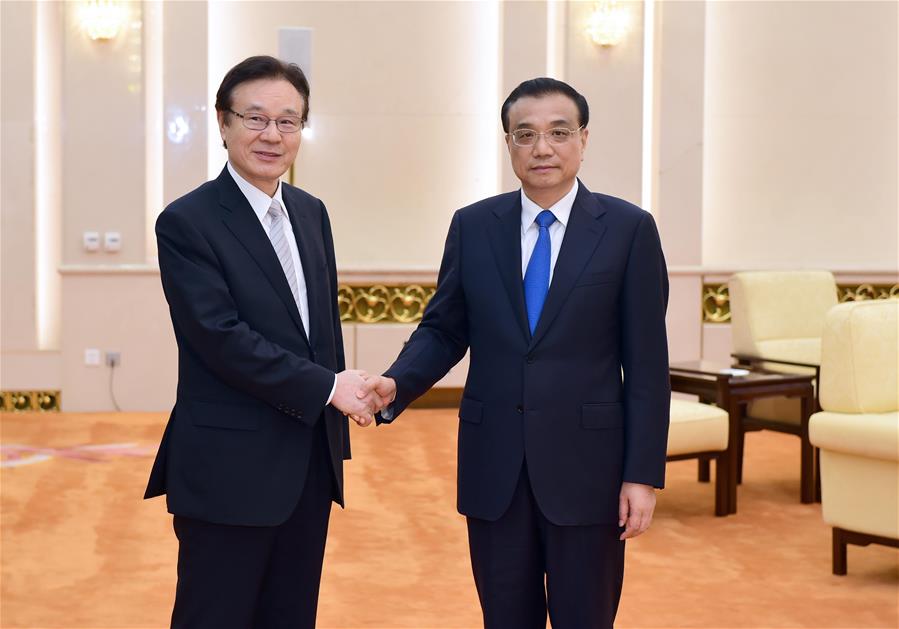 时刻新闻
时刻新闻

BEIJING, Aug. 25 (Xinhua) -- Chinese Premier Li Keqiang on Thursday urged China and Japan to make joint efforts to push bilateral relations back to a normal track.
Li told visiting secretariat head of Japan's National Security Council Shotaro Yachi that the two countries should accumulate positive factors and reduce negative elements in bilateral ties.
Both sides should adhere to the four political documents reached by the two countries in 1972, 1978, 1998 and 2008, said the premier.
The China-Japan relationship is still very fragile although there is a momentum of improvement, according to Li.
In the meeting, Yachi read Japanese Prime Minister Shinzo Abe's letter to Li. Abe said that Japan is ready to work with China to forge a stable relationship that can benefit both sides.
Japan expects a successful G20 summit and is willing to enhance cooperation with China in this regard, Abe said in the letter. Abe will attend the summit to be held on Sept. 4-5 in the eastern Chinese city of Hangzhou.
Li called on both sides to properly deal with new and old issues between the two countries, steadily push forward exchanges and cooperation, and maintain the positive momentum of bilateral ties.
He hoped Japan will really adopt a correct understanding of China and fulfil the commitment to taking China's development as its opportunity.
The two countries should also jointly safeguard peace and stability in surrounding sea areas, according to Li.
Japan wants to strengthen high-level contact and communication with China, Yachi said, adding the country is also willing to work with China to control their differences in the East China Sea.
Earlier in the day, Yachi and Chinese State Councilor Yang Jiechi co-chaired the third China-Japan high-level political dialogue.
Yang called on Japan to "play a constructive role" in the G20 Hangzhou summit.
As the world's second and third largest economies, cooperation to ensure the success of the summit is in the interests of all parties, said Yang.
The improvement of China-Japan ties has been continuously disturbed by various problems, especially the issues related to East China Sea and South China Sea, which is in the interests of neither side, he said.
Yang hoped the two sides could continue to abide by the principles defined in the four political documents and the four-point principled agreement reached between the two sides.
The four-point principled agreement was reached by Yang and Yachi on the sidelines of the APEC meeting in November 2014 in Beijing.
Japan attaches great importance to the significance of the four political documents and the four-point principled agreement, Yachi said.



